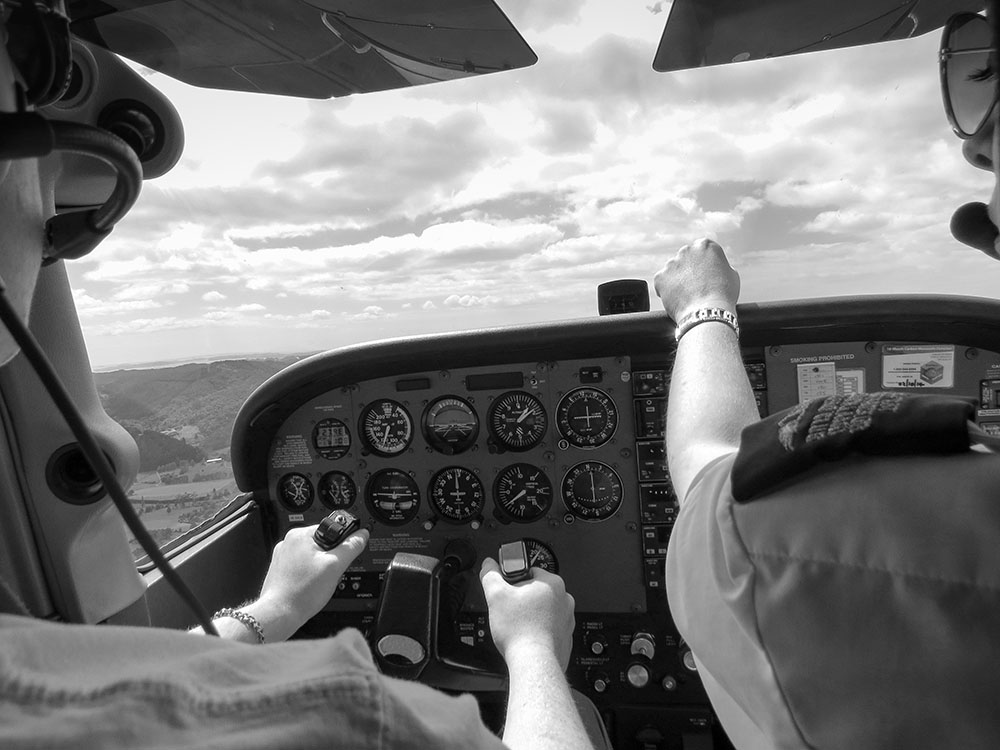At The Clearing, we know from experience that high-performance teams and organizations prioritize diversity and inclusion in the workforce. Given this, we focus The Clearing’s talent management strategy on recruiting and retaining consultants from a wide variety of backgrounds and skillsets.
My personal background is an example of this skill diversity: my professional career began in the U.S. military, and has spanned a variety of public and private sector roles.
At 19, I graduated flight school and advanced to instructor pilot and Special Operations aviator with the United States Army. Having met my goals in the Army, I continued to serve in the National Guard while working as a commercial airline pilot. Feeling that I had more to give outside of aviation, I began building a career in key roles as senior White House liaison, strategic program manager, and executive consultant.
From my perspective, the fact that The Clearing team seeks out employees with diverse backgrounds and embraces my unique perspective is one of our key differentiators. This mindset adds to our ability to serve clients, both shaping and deepening our ability to understand and support individuals with dissimilar and widely varied backgrounds.
Over the years, I’ve found that many of the challenges civilian leaders face are very similar to those encountered in the military. I strongly believe that my experiences as a soldier taught me many important lessons that I share with our clients every day as we partner together:
1. Commit to the Mission and See It Through
Soldiers are known for the commitment they make to put service above self and follow through on the mission, even when there are many challenges standing in their way. They are willing to step out of their comfort zones and press onward despite adversity.
Good leaders, too, must commit to doing the right thing for their organizations, employees, and clients when challenges arise. They will be pushed out of their comfort zones and may be called upon to make personal sacrifices for the greater good. Like a soldier, a good leader may find themselves giving up personal time and energy in order to carry out their professional objectives.
2. Be Flexible and Change Course As Needed
In the field, soldiers know that surprises are practically guaranteed. They must be ready to adapt to constantly changing circumstances while still moving toward their target.
Like soldiers, leaders must also be agile in order to reach their goals. It’s beautiful when everything goes according to plan, but often even the best plans must be adapted to changing conditions in the workplace. For example, leaders may face:
- Deadlines that become derailed due to uncontrollable external factors
- Employees who benefit from different management approaches
- Customers with unique, conflicting, or unexpected needs
- A constantly evolving marketplace impacted by factors outside one’s control
If a leader expects the unexpected and remains flexible in spite of it, they will be ready to manage whatever surprises come along.
3. Never Stop Learning
In the military, we rotate our duty stations every few years. These shifts require a soldier to adopt a mindset of continuous learning. As soldiers take on new roles, they add new skills and expand their capabilities.
As leaders, it’s easy to feel complacent with a top role in one’s organization, but leaders benefit from continuous learning every bit as much as their employees do. The Harvard Business Review points out that the best leaders are the best learners, illustrating that leaders must learn in order to reinvent their organizations and remain relevant in a fast-paced economy.
4. Be Ready to Adapt to Suboptimal Conditions
Soldiers work in less-than-ideal conditions as a matter of course. More often than not, they must carry out their missions without all the details surrounding an operation, using limited resources, in precarious locations, at inopportune times. Regardless, they carry on toward their objectives.
Like soldiers on a battlefield, leaders are also subject to working in suboptimal conditions. Good leaders are ready to adapt to those conditions, adjust their plans, and advance the organization’s objectives all the same. Over time, leaders grow accustomed to things like:
- Limited budgets for marketing, research and development, human resources, and other efforts
- Unexpected challenges like sudden deadlines, product deficiencies, missing skills, unhappy customers, and more
- Bad timing for product launches, meetings, travel, or employee absences
The faster a leader accepts that they must work in the real world rather than a perfect one, the faster they can overcome less-ideal aspects of their role.
You don’t have to be a soldier to draw upon the virtues of dedication, flexibility, and adaptability as a leader. While some learn these skills on a battlefield, others learn them in a boardroom and they’re every bit as important.
Do you have elements of your background that have taught you career lessons? I invite you to continue the conversation around how your life experiences have shaped your leadership style by reaching out to me.
